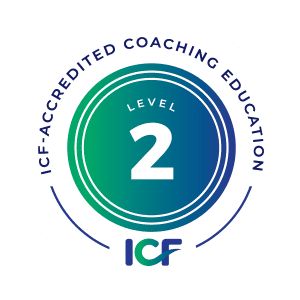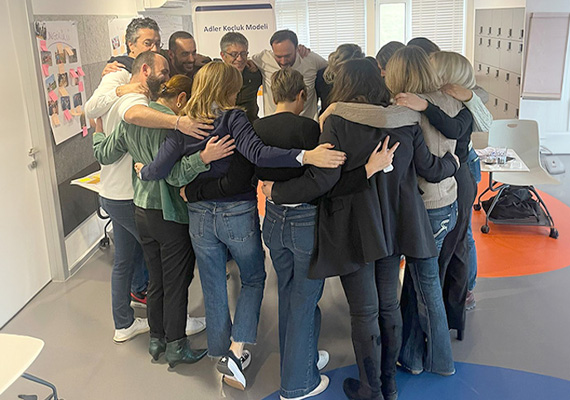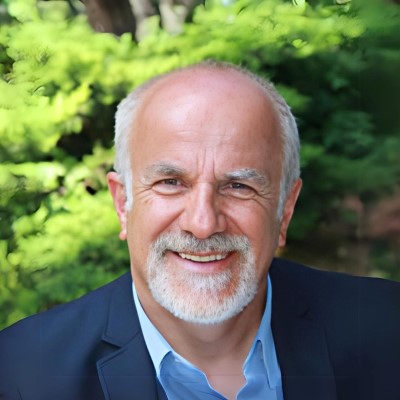Adler Central Europe 2024 Training Calendar
Please contact with us about our english individual trainings.
Contact UsICF Accredited Certified Coaching Programs
Our Faculty Leaders deliver our trainings with interactive and engaging learning materials with global knowhow.

Why Adler Coaching Programs?
The Adler Coaching Model takes both its name and its basic principles from the individual psychology studies of Austrian psychologist and pedagogue Alfred Adler, who is known as the founder of "Positive Psychology".
Our ICF accredited Certified Coaching Programs support the personal development and change of our participants by addressing their private and business lives with a holistic approach and enable to acquire the profession of Professional Coaching, which is a lifelong profession with our PCC and MCC level Faculty Leaders who have local and global experience. Our certification process has been developed especially for managers aiming for professional development and change, human resources professionals, trainers and teachers, consultants and individuals aiming for personal development.
Our programs blended by conceptual and experiential learning methods, considering both the science and art of coaching with the ICF Coaching Competencies.

Our 6 Module Coaching Programs; blended by conceptual and experiential learning methods, considering both the science and art of coaching with the ICF Coaching Competencies.

Why Coach Education?
Our lives and workplaces are full of challenging relationships, complicated issues, and sometimes a feeling of being stuck. The coaching approach creates a path forward marked by curiosity, respect, and helping people tap into their inner wisdom and resourcefulness. Coach training teaches you to shape environments and conversations where people access their most significant potential resulting in improved lives, relationships, and business outcomes. It can also be a path to your own transformation.

Modules
-
Part 1: Foundations of Professional Coaching
In this section, which is the heart of coaching, key distinctions about the filed, mindset, and subject of coaching are thoroughly discussed. Work is carried out on the conceptual foundations of coaching, the Adler coaching model, and applications. In-depth examples of coaching tools to be used in coaching sessions are provided, taking the first steps into the Professional Coaching field.
Focused on ICF Core Competencies:
3. Establishes and Maintains Agreements
4. Cultivates Trust and Safety -
Part 2: Transformational Coaching: Applications to Client Context
In this section, which is the science of coaching, the focus is on applying coaching skills and tools in the context of work, with and emphasis on techniques. Coaching tools aimed at improving job performance are practically internalized, and effective feedback skills are addressed. In-depth learning of the ICF Code of Ethics accompanies coaching studies.
Focused on ICF Core Competencies:
7. Evokes Awareness
8. Facilitates Client Growth -
Part 3: Deep Coaching: The Coach’s Signature Presence
In this section, which is the art of coaching, the integration of what has been learned is emphasized. The advancement and deepening of artistic and creative coaching skills are facilitated. Acquiring self-leadership skills, revealing Coaching Presence as a Coach, and developing skills to apply coaching competencies by staying in the moment are embraced through effective use of creativity and imagination.
Focused on ICF Core Competencies:
5. Maintains Presence
6. Listens Actively -
Part 4 & 5: Practicum & Mentor Coaching:
This in-depth coaching approach, which focuses on the ICF Core Competencies through laboratories, supervisions, group mentor coaching, and case studies, involves the preparation of a portfolio. The learning process spans 7-9 months. After completing the three modules, the coaching profession is deeply learned in the ICF credentialing process with a supportive and comprehensive approach.
Focused on all of ICF Core Competencies.
Click for detailed information. -
Part 6: Adler Certified Associate Coach (ACAC) Exam
Coaches who have completed the first 4 modules of the Adler Coaching School and finalized 2 sets of 30-minute case recordings and transcriptions can attain their title by participating in this examination.












